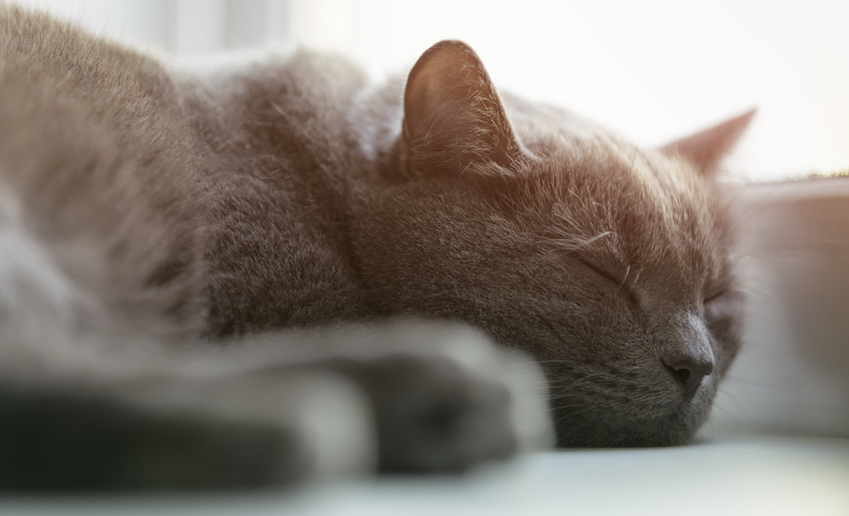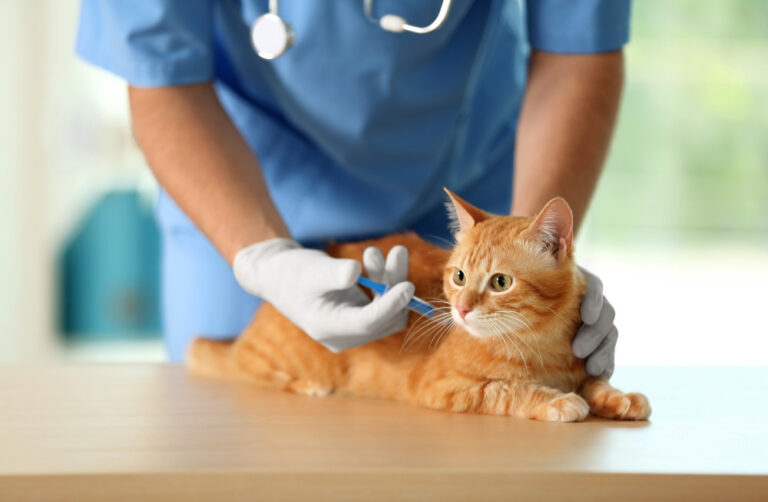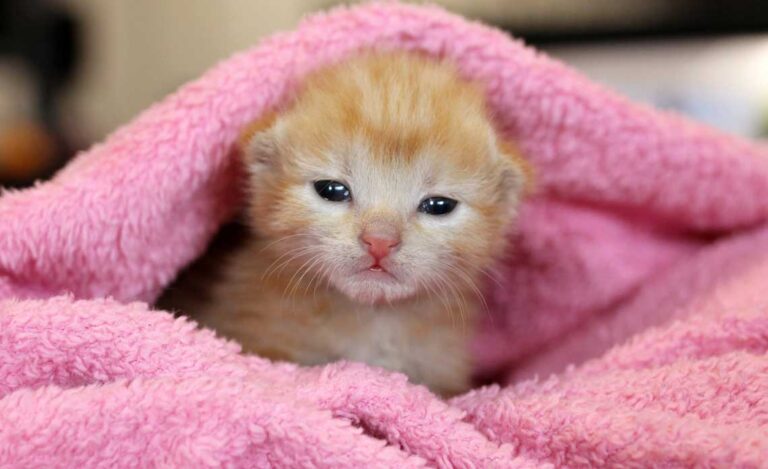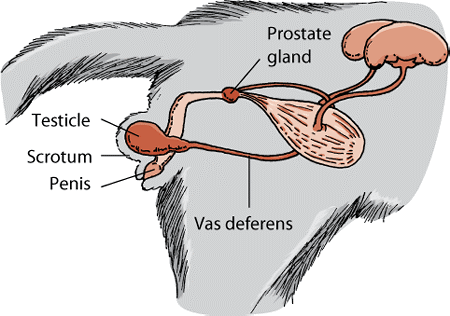Understanding Common Ailments Affecting Cats
Cats are beloved pets that bring joy and companionship to many households. However, like any living creature, cats are susceptible to various ailments and health problems. It is essential for cat owners to have a basic understanding of the common ailments that can affect their feline friends.
One of the most common ailments in cats is respiratory issues. Cats can develop respiratory infections, which can be caused by viruses or bacteria. Symptoms may include sneezing, coughing, and nasal discharge. It is crucial to seek veterinary care if your cat exhibits any of these signs, as respiratory infections can lead to more severe complications if left untreated.
Another common ailment seen in cats is urinary tract problems. Cats, especially male cats, are prone to developing urinary blockages or urinary tract infections. These conditions can cause discomfort and pain for your cat and may be accompanied by symptoms such as frequent urination or blood in the urine. It is vital to monitor your cat’s litter box habits and seek veterinary attention if you notice any changes or abnormalities. By understanding these common ailments, cat owners can be better equipped to recognize the signs and seek appropriate medical care for their furry companions.
Recognizing the Signs and Symptoms of Feline Health Problems
Cats, like any other living beings, can experience various health problems. It is important for cat owners to be able to recognize the signs and symptoms of these ailments in order to provide appropriate care and seek timely veterinary attention. One of the first things to pay attention to is changes in behavior. Cats are known for their independent nature, so any sudden changes in their activity levels, appetite, or grooming habits may indicate an underlying health issue. This could range from a minor problem like an upset stomach to a more serious condition like kidney disease. Hence, it is crucial to be observant and note any unusual behaviors or patterns.
Another aspect to consider when recognizing feline health problems is changes in physical appearance. A cat’s coat is a good indicator of overall health, so owners should be vigilant about changes in its texture, color, or shedding patterns. Additionally, any visible abnormalities or wounds, such as lumps, bumps, or skin lesions, should not be ignored. Furthermore, changes in a cat’s litter box habits, including difficulty urinating or blood in the urine, might indicate problems related to the urinary tract. Ignoring these signs can lead to further complications, so it is vital to seek prompt veterinary advice to prevent the condition from worsening. By being attentive to these signs and symptoms, cat owners can play a proactive role in ensuring the well-being of their furry companions.
Maintaining a Nutritious Diet for Optimal Cat Health
Feeding your cat a nutritious diet is essential for their overall health and wellbeing. Cats are obligate carnivores, which means they require a diet rich in animal-based protein to thrive. When choosing cat food, opt for high-quality commercial cat foods that list specific animal proteins, such as chicken or fish, as the first ingredient. Avoid foods that contain excessive fillers, such as grains, as these provide little nutritional value for your cat.
In addition to protein, cats also need a balanced mix of fats and carbohydrates in their diet. Look for cat foods that contain a moderate amount of healthy fats, like omega-3 fatty acids, which are beneficial for their skin and coat health. Carbohydrates, although not necessary in large quantities, can be included in the diet in the form of small amounts of vegetables or grains.
Remember that water is an essential part of a cat’s diet too. Cats have a low thirst drive, so it’s important to ensure they have access to fresh water at all times. Some cats also benefit from wet cat food, which provides additional hydration.
Lastly, it’s best to consult with a veterinarian to determine the specific dietary needs of your cat. They can provide guidance on portion sizes and any special dietary considerations your cat may have based on their age, weight, and overall health. By maintaining a nutritious diet for your cat, you are supporting their optimal health and longevity.
The Importance of Regular Veterinary Check-ups for Cats
Regular veterinary check-ups are a crucial aspect of maintaining your cat’s overall health and well-being. These check-ups allow veterinarians to detect any potential health issues early on, before they develop into more serious problems. During these visits, your veterinarian will conduct a thorough physical examination, checking your cat’s vital signs, coat condition, eyes, ears, and teeth. They may also recommend specific tests, such as blood work or radiographs, to further assess your cat’s internal health.
Apart from assessing your cat’s physical health, regular check-ups also provide an opportunity for your veterinarian to address any concerns or questions you may have. They can offer guidance on various aspects of your cat’s care, including nutrition, exercise, and parasite prevention. Your veterinarian can also administer necessary vaccinations to protect your cat against common diseases and ensure they are up-to-date with their preventative treatments. By taking your cat for regular veterinary check-ups, you are taking a proactive approach to their health and ensuring that potential issues are identified and addressed in a timely manner.
Preventive Measures: Vaccinations and Parasite Control for Cats
Preventing illness and ensuring the overall well-being of our feline companions requires a proactive approach. Vaccinations play a crucial role in safeguarding cats against common diseases. By stimulating the immune system to recognize and attack specific infectious agents, vaccinations offer valuable protection. Core vaccines, recommended for all cats, include the feline viral rhinotracheitis, calicivirus, and panleukopenia. These diseases can cause respiratory, oral, and gastrointestinal issues, and can even be fatal. Additionally, depending on the cat’s lifestyle and environment, non-core vaccines may be recommended to protect against diseases such as feline leukemia virus and feline immunodeficiency virus.
In addition to vaccinations, parasite control is another essential aspect of preventive care for cats. Parasites, such as fleas, ticks, and intestinal worms, can cause a range of health problems, from skin irritation to anemia and even life-threatening infections. Regular use of appropriate parasite prevention products is essential to keep these pesky invaders at bay. Flea and tick prevention products come in various forms, including topical treatments, oral medications, and collars. It’s crucial to consult with your veterinarian to determine the most appropriate options for your cat based on their age, health status, and lifestyle. Remember, prevention is key when it comes to these parasites, as treating an infestation can be much more challenging and time-consuming than proactively protecting your cat.
Managing Respiratory Issues and Allergies in Cats
Respiratory issues and allergies can pose significant challenges for our feline companions. Cats are susceptible to various respiratory conditions, such as asthma, bronchitis, and pneumonia, which can cause breathing difficulties and discomfort. Additionally, allergies, both environmental and food-related, can trigger respiratory symptoms in cats, leading to sneezing, coughing, and wheezing. It is crucial for cat owners to be aware of these issues and take necessary steps to manage them effectively.
When it comes to managing respiratory issues and allergies in cats, there are several approaches that can help alleviate symptoms and improve their overall well-being. The first step is to identify and eliminate any potential triggers that may be causing or exacerbating the problem. This could include minimizing exposure to dust, pollen, or certain types of litter. Additionally, ensuring a clean and allergen-free living environment can play a significant role in reducing respiratory distress in cats. Regular cleaning of bedding, vacuuming, and dusting can help reduce the presence of allergens in the environment. In cases where allergies are suspected, it may be beneficial to explore dietary options that are hypoallergenic or free from common allergens, such as certain proteins or grains. Working closely with a veterinarian can help determine the best course of action for managing respiratory issues and allergies in cats and provide guidance on appropriate treatments and medications if necessary.
Navigating Gastrointestinal Disorders in Feline Health
Gastrointestinal disorders can be a common and troubling issue for cats. These disorders can range from mild upset stomachs to more serious conditions such as gastritis or inflammatory bowel disease (IBD). It is important for cat owners to be familiar with the signs and symptoms of these disorders in order to address them timely.
One of the most common symptoms of a gastrointestinal disorder in cats is vomiting. Cats may vomit occasionally due to hairballs or eating too quickly, but frequent or persistent vomiting could indicate an underlying issue. Another sign to look out for is diarrhea, which can be watery, loose, or even contain blood. Additionally, cats with gastrointestinal disorders may experience a decrease in appetite, weight loss, or lethargy. If you notice any of these signs in your cat, it is advisable to seek veterinary attention for a proper diagnosis and treatment plan.
Addressing Urinary Tract Problems in Cats
One of the most common health issues that cats may experience is urinary tract problems. These problems can range from simple urinary tract infections to more serious conditions like urinary crystals or stones. When a cat is dealing with urinary tract problems, it can be quite uncomfortable and even painful for them. It is important for cat owners to be aware of the signs and symptoms of urinary tract problems so that they can seek appropriate treatment for their furry companions.
One of the key signs that there may be an issue with a cat’s urinary tract is frequent urination. Cats with urinary tract problems often feel the need to urinate more frequently than usual, and they may even have accidents outside of the litter box. Another common symptom is straining or difficulty while urinating. Cats may spend an extended amount of time in the litter box trying to relieve themselves, and they may show signs of discomfort or pain during the process. It is crucial for cat owners to recognize these signs and consult a veterinarian promptly to address any urinary tract problems and ensure their feline friend’s well-being.
What are some common urinary tract problems in cats?
Some common urinary tract problems in cats include urinary tract infections, bladder stones, and feline lower urinary tract disease (FLUTD).
What are the signs and symptoms of urinary tract problems in cats?
Signs and symptoms of urinary tract problems in cats may include frequent urination, straining to urinate, blood in the urine, urinating outside of the litter box, and pain or discomfort while urinating.
How can I help maintain a nutritious diet for my cat’s urinary tract health?
To maintain a nutritious diet for your cat’s urinary tract health, it is important to provide them with a balanced and high-quality cat food that is specifically formulated for urinary health. Additionally, ensuring they have access to fresh water and avoiding foods high in magnesium and phosphorus can also be beneficial.
How often should I take my cat for veterinary check-ups?
It is recommended to take your cat for regular veterinary check-ups at least once a year. However, senior cats or cats with pre-existing health conditions may require more frequent visits.
What preventive measures should I take to keep my cat healthy?
Vaccinations are essential to prevent common diseases in cats, such as feline leukemia virus and feline infectious peritonitis. Regular parasite control, including flea and tick prevention, is also important for maintaining your cat’s overall health.
How can I manage respiratory issues and allergies in my cat?
If your cat is experiencing respiratory issues or allergies, it is important to consult with a veterinarian for proper diagnosis and treatment. They may recommend medication, environmental changes, or special diets to manage these conditions.
What are some common gastrointestinal disorders in cats?
Some common gastrointestinal disorders in cats include vomiting, diarrhea, constipation, and inflammatory bowel disease. These conditions may require dietary changes, medication, or other treatments prescribed by a veterinarian.
How can I address urinary tract problems in my cat?
If your cat is experiencing urinary tract problems, it is important to seek veterinary attention. A veterinarian can perform diagnostic tests, such as a urinalysis or ultrasound, to determine the cause of the problem. Treatment may involve medication, dietary changes, or surgery, depending on the specific issue.







